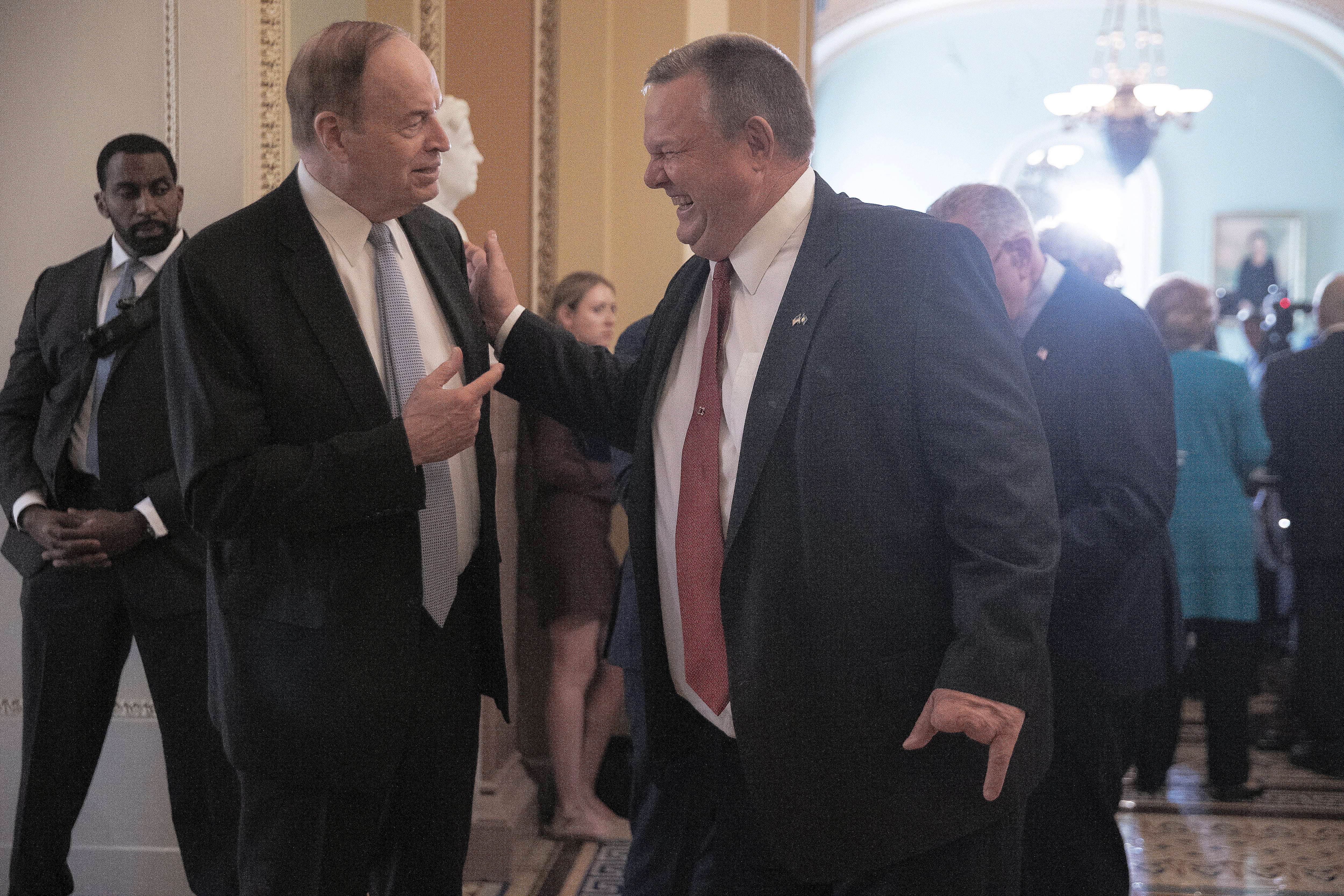WASHINGTON― House progressives will have a few chances to hold down the defense budget this week, but it’s going to be an uphill fight.
The House is set to vote this week on two Democratic amendments to cut the fiscal 2022 National Defense Authorization Act’s $740 billion top line. One would reduce it by roughly 10 percent, and another would undo a $24 billion a plus-up the House Armed Services Committee passed earlier this month.
Key Republicans have warned that cutting the NDAA would cost their support, which Democrats likely need to pass the bill. When the House Rules Committee met Monday to screen amendments, the panel’s top Republican, Rep. Tom Cole of Oklahoma, said his party likes the bill as-is.
“So long as this bill remains largely in its current form and the funding levels remain where they are, I think you will see overwhelming support from Republicans,” Cole said.
On Tuesday, the panel advanced a rule that allows consideration of 476 amendments. Among them:
- A prohibition on funding for the Air Force’s nascent Ground Based Strategic Deterrent — a next-generation intercontinental ballistic missile and its warhead, the W87-1 — from Rep. John Garamendi, D-Calif.
- A prohibition on U.S. military forces in Syria without approval from Congress within one year, from Rep. Jamaal Bowman, D-N.Y.
- A prohibition on U.S. military logistical and intelligence support for Saudi air forces conducting strikes in the Yemen civil war, from Rep. Ro Khanna. (A separate amendment from House Foreign Affairs Committee Chairman Gregory Meeks, D-N.Y., would bar U.S. sustainment and maintenance support for those forces, with certain exemptions.)
- The top line-lowering amendments are a proposed 10 percent cut (excluding salaries and health care of military personnel), from Rep. Mark Pocan, D-Wis., and proposed reduction of the defense authorization top line to the level requested by the president, from Rep. Barbara Lee, D-Calif.
In 2020, the House and Senate defeated twin measures to reduce the Pentagon budget by 10 percent to address the pandemic’s economic fallout. Then, Democrats split, with the Senate voting 23-77 and the House voting 93-324.
While Republicans argue President Joe Biden’s budget request is inadequate to counter Russia and China, progressives say that addressing the COVID-19 pandemic and other domestic needs should take precedence over larding the Pentagon’s budget.
“We face imminent threats from the COVID pandemic, climate change, growing economic inequality, and systemic racial and ethnic inequities [and] also, domestic terrorism,” Lee said. “It is time to shift our spending priorities to meet these priorities. I personally support much larger cuts to the Pentagon budget.”
RELATED

On Monday, Democratic leaders ― House Rules Committee Chairman Jim McGovern and HASC Chairman Rep. Adam Smith― said they don’t like the Republican increase, but they see themselves as outnumbered.
“From my vantage point, I think we spend too much on our military budget, but I’m clearly in the minority after listening to everybody here speak today,” McGovern said.
At the same hearing, Smith reiterated that he supports Biden’s budget but lost his panel’s vote at markup. There, 14 HASC Democrats voted for the plus-up proposed by HASC ranking member Mike Rogers, R-Ala.
“I think Biden budget was right. But you know, I do believe in democracy. We had a vote and I lost,” Smith told the panel.
Joe Gould was the senior Pentagon reporter for Defense News, covering the intersection of national security policy, politics and the defense industry. He had previously served as Congress reporter.






